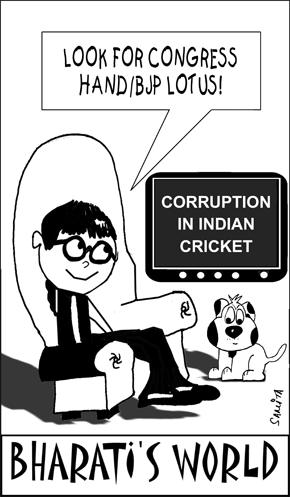West Bengal: Misplaced priorities
The education sector — the pride of West Bengal (pop. 91 million) in the 19th and 20th centuries — hit rock bottom during the 34 years of uninterrupted reign (1977-2011) of the Communist Party of India-Marxist (CPM)-led Left Front government in the state when quasi-literate CPM fellow travellers and apparatchiks captured the state’s institutions of education, driving teaching-learning standards to new lows. Not only did this phenomenon precipitate a flight of the bhadralok (cultured middle class) from the state, it also vastly increased primary school dropout percentages. According to some estimates, the percentage of children dropping out prior to entering secondary education is a massive 80.7 percent in West Bengal against the national average of 53 percent.
However, after the Left Front was routed in the May 2011 assembly election by the Trinamool Congress party, its firebrand chief minister Mamata Banerjee started a major “detoxification’’ campaign of the state’s education system to restore it to its lost glory. Initiatives were taken to promote English-medium schools under the Kolkata Municipal Corporation, revise school syllabuses and excise communist propaganda from them, and to transform Presidency University into an institution of academic excellence. But two years on, these initiatives haven’t made much headway.
 Even as these initiatives are yet to get off the ground, the West Bengal Board of Secondary Education and the West Bengal Council of Higher Secondary Education (WBCHSE) are set to introduce a “code system’’ which protects the identity of examinees to reduce — if not eliminate — favouritism by teachers/examiners.
Even as these initiatives are yet to get off the ground, the West Bengal Board of Secondary Education and the West Bengal Council of Higher Secondary Education (WBCHSE) are set to introduce a “code system’’ which protects the identity of examinees to reduce — if not eliminate — favouritism by teachers/examiners.
On May 20, education minister Bratya Basu, after a meeting with the heads of the two state examination boards, said: “We have decided to take some steps to make the examination process more secure. This includes introduction of codes and checking of answer scripts at a central location.” The council and board officials will assess the possibility of implementing the proposal, and a final decision will be taken after consulting all stakeholders in school education. Which means the identity cloaking system won’t be introduced any time soon.
But when the system becomes operational each student will be assigned a code number unknown to all including the student who will write her roll and registration number as usual. But when the answer scripts reach examiners, they will be number coded. According to Basu, this security system is common in all major public examinations.
This is the TMC administration’s answer to allegations of widespread nepotism, bias and suborning of examiners by wealthy students. Moreover, under the proposed reform, teachers will evaluate students’ answer scripts inside secure camps instead of taking them home.
The consensus of opinion among educationists in Kolkata is that the TMC government’s latest examination reform initiative is indicative of misplaced priorities. Sudin Chatterjee, former WBCHSE president, believes that the infrastructure expenditure required to implement this proposal will be a problem for the cash-starved TMC administration, and that teachers will be resentful of the new system of checking answer scripts in secure environments.
“There are other issues like improving teacher-pupil ratios, building new schools, libraries, and playgrounds mandated by the RTE Act which should be given priority. This exams reform initiative which will take a long time to implement, will shift attention away from the serious needs of West Bengal’s languishing school system,’’ says Chatterjee.
But to be fair to West Bengal’s TMC government, announcing grandiose schemes and forgetting to implement them is a national malaise.
Baishali Mukherjee (Kolkata)














Add comment